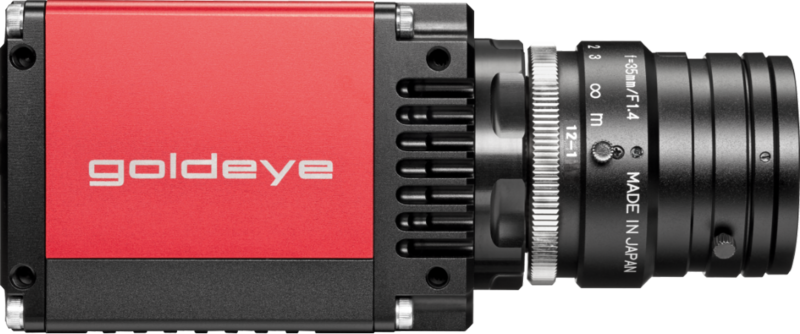Goldeye SWIR cameras measure precision of laser beams
To feed source signals into the fiber optic cable with as little loss as possible, telecommunications companies monitor lasers’ performance data using laser beam profilers. CINOGY Technologies GmbH in Ruderstadt Germany is a provider of high-quality laser beam characterization systems. Their laser beam profilers for the near infrared range, where telecommunication wavelengths fall, are based upon modern InGaAs (Indium-Gallium-Arsenide) sensors and are equipped with infrared cameras from Allied Vision.
The challenge
Stability of laser signals
Anyone who uses a mobile phone connection to watch online videos or television, or to use other services, expects the most distortion-free picture and sound quality possible. In order to ensure stability of the laser signal being sent, telecommunications companies use laser beam analysis devices called profilers. For effective laser use, monitoring and compliance of parameters such as beam position and size, power, and laser beam profile are of the utmost importance. Radiation scattering loss as well as different angles of incidence should be avoided when light signals are being coupled in the cable. With a fiber diameter of approximately 6 µm, bundling and directing the beam so that the coupling efficiency —meaning the relationship of the original beam to coupled performance — is optimal, represents a challenge.
The solution
Beam profilers based on InGaAs-sensors
In the short-wave infrared range, beam profilers based on InGaAs-sensors are especially well suited for laser measurement. Since CCD and CMOS-sensors can only be used for wavelengths up to 1,100 nm maximum, InGaAs-sensor-based cameras expand the measurable wavelength range up to 1,700 nm. CINOGY installs either the Allied Vision Goldeye G-008 SWIR (320x256 pixels) or the Goldeye G-033 SWIR (640x512 pixels) infrared camera in the laser beam profiler, depending upon the resolution required. Both models use a SWIR (short-wave infrared) InGaAs FPA sensor and are sensitive within the spectral range from 900 nm to 1,700 nm.
The laser beam is pointed directly onto the InGaAs sensor and can then be analyzed. Analysis of the data captured by the camera takes place using RayCi analysis software, developed by CINOGY Technologies.
The benefits
Stable performance
The program enables continual monitoring of beam parameters, such as coupling efficiency, in real-time measurement. If there are undesired structures in the beam, the laser profile displays signal loss live in the system. In order to measure performance stability, values are measured over a defined time period and compared with one another.
Decisive parameters are visualized in various two-dimensional profiles that reproduce the form and profile of the beam.
The camera: Goldeye G-008 SWIR or Goldeye G-033 SWIR
Goldeye SWIR cameras with InGaAs sensor technology
CINOGY installs either the Allied Vision Goldeye G-008 SWIR (320x256 pixels) or the Goldeye G-033 SWIR (640x512 pixels) infrared camera in the laser beam profiler, depending upon the resolution required. Both models use a SWIR (short-wave infrared) InGaAs FPA sensor and are sensitive within the spectral range from 900 nm to 1,700 nm.
Thanks to a standard Gigabit-Ethernet-interface with an integrated power supply via Ethernet, as well as comprehensive input/output control options, the cameras can be integrated into the complex CINOGY laser beam profilers, operated, and controlled with no problem. The cooled sensors inside the camera for laser beam characterization enable an increase in sensitivity while maintaining low background noise, even with long exposure times.
Highlights at a glance
- Beam parameters are continually monitored and calibrated to stabalize and optimize the performance.
- In the short-wave infrared range, beam profilers based on InGaAs-sensors are especially well suited for laser measurement.
